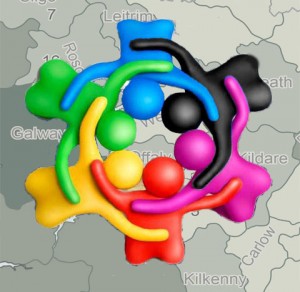 In response to the growing interest in the Irish Midlands in schemes which seek to export renewable energy directly to the UK Electricity grid, Energy Co-operatives Ireland, is setting up a large community co-op in the area concerned.
In response to the growing interest in the Irish Midlands in schemes which seek to export renewable energy directly to the UK Electricity grid, Energy Co-operatives Ireland, is setting up a large community co-op in the area concerned.
Energy Co-operatives Ireland has established smaller scale renewables co-ops in Ireland but now aims at creating a much larger and more geographically diverse co-operative. This will be aimed at maximizing the benefits to the relevant local communities of proposed large scale energy export projects.
Energy Co-operatives Ireland Spokesperson Cormac Walsh Stated:
‘We aim to set up a 10,000 member co-operative in the Midland region which will have two key roles in the development of renewable energy here. Firstly, our members should be able to gather enough funds through shareholdings to add vital Irish-based equity to any new initiative. Secondly we will also be able to ensure that the local communities in these areas will get real social and economic returns for the consent that they will be granting to these projects.’
Until now there has been only mixed success in achieving strong public acceptance for wind farm developments. Developers that point to construction employment benefits and commercial rate payments to County Councils are increasingly being met with calls that these are not enough to generate community support. Schemes such as community bursaries and social funds are also open to the criticism that they are operating on a 19th century benevolence model.
‘We are suggesting that local communities will decide how the benefits of large scale wind projects are dispersed. A company setting up a committee to distribute a fraction of their profits on whatever projects they want to support is not the answer to the public acceptance problem. We want a say in the distribution of the profits through a share in the equity. All members of the local community are potentially involved. Landowners rightly play a central role, but they can be joined in the support of a scheme by other local groups. All kinds of local people are affected by large scale projects such as those being proposed – they can influence public acceptance; their support can facilitate developers’ plans and speed up the planning process.’
Pádraig Howard of the large community owned West Clare Renewables wind farm project is participating in launching the proposed co-op. ECI points to the success of local community involvement in the 80MW Mount Callan wind farm as just one Irish example of a positive international trend of increasing community equity involvement in the renewables sector. The example of Scottish & Southern Energy’s involvement in the 500MW Viking Wind Farm, the Shetland Islands is another case in point. SSE is moving ahead with plans to build large scale wind farms with community involvement at their core in Scotland. The strategy of engaging local communities in renewables projects from the earliest stages, including the granting of equity or options to purchase shares, is seen by many as key to the success of some of Scottish and Southern’s projects.
Howard suggests: ‘An energy co-op on the scale proposed by ECI would hold out the prospect of becoming a significant equity partner in future large wind farm projects in the Midlands, it also would significantly improve the public acceptance of such projects. A Co-op such as this would be able to raise equity funding which would be critical in getting such wind farm projects completed. This was our direct experience in achieving the success of the Mount Callan project’.
Energy Co-operatives Ireland also pointed out that the change in personnel at the UK Ministry for Energy is likely to lead to increases in electricity rates in the UK making the production and export of power to the UK grid more lucrative for Irish projects.
The new minister is seen as likely to promote nuclear energy as a preferred energy source. This will be bad news for the environment, the UK renewables sector, but most of all to the UK consumer. There is no question but that the UK consumer will have to pay more for power as the UK has to construct more nuclear generators.
However, anyone selling into the UK market will have the consolation that they themselves should as a result be paid more for their electricity. Local communities need to be aware of the likely future profits to be had from rising prices when determining how best they are to gain from the proposed developments.
‘This ultimately means that the local people in the midlands should not sell themselves short at this early stage. Only an equity stake ensures that future profitability will be shared amongst all the stakeholders.’
Energy Co-operatives Ireland are confident that, as Ireland is the country in the world with the highest per capita co-operative membership, their proposals will meet with enthusiasm. They have also contacted the IFA who have expressed an interest in their renewable energy co-operatives proposals.
‘Ireland’s grasp of the virtue of the co-operative model is world renowned. Some of our biggest companies are co-operatives. Large numbers of farmers are co-op members, as is anyone with a credit union account. We are confident that local people in the Midlands will know what the real value of the new renewable energy co-op represents.’
Energy Co-operatives Ireland will be holding public meetings at various locations in the Midlands to discuss their proposed co-operatives in the coming weeks.
For information/background contact Cormac Walsh Energy Co-ops Ireland www.energyco-ops.ie
cormac.walsh@energyco-ops.ie tel: 0866784063
